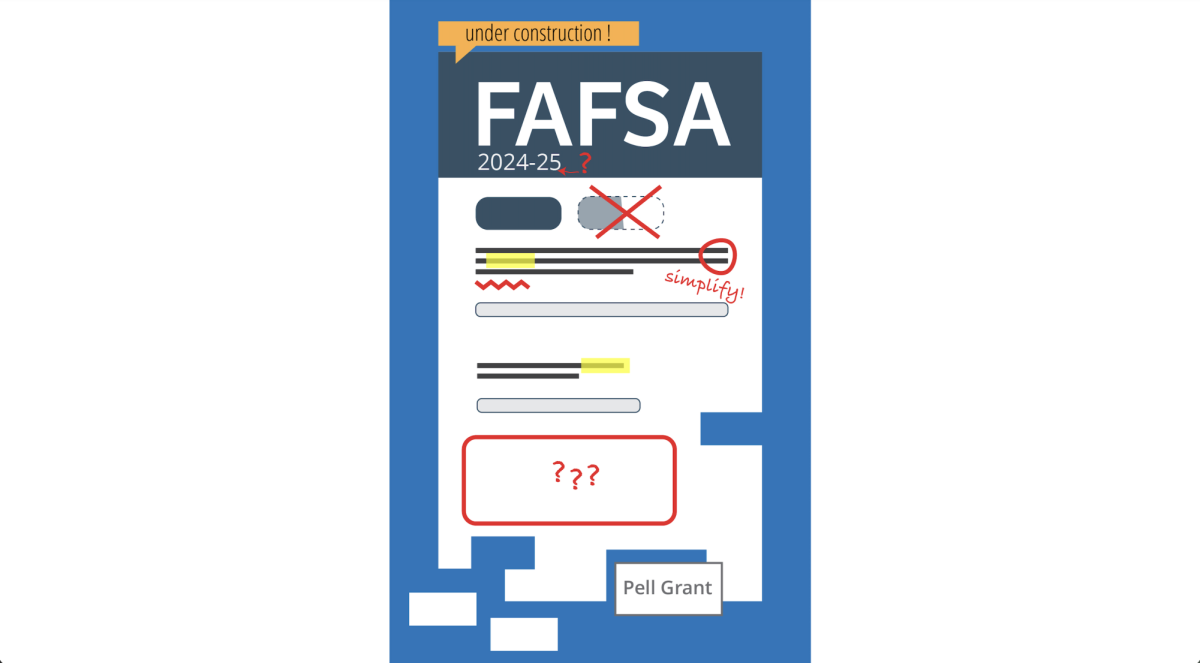Every college student knows about the stress that admissions deadlines brought when deciding what university to fully commit themselves to. Especially because the decision is often informed by the amount of federal financial aid any student is able to receive.
However, the prospective class of 2028 is clueless as to exactly how affordable their collegiate dreams might be.
Seattle U typically rolls out the admission decisions within four to six weeks after the application deadline, Jan. 15. With that, students often find out about their financial aid package no later than March 4 so that they can make a decision based on that information. Though students were informed March 6 of whether or not they could become a Redhawk, the lack of knowledge in regard to how much federal aid one will receive may make the decision of commitment an intimidating one.
In hopes of alleviating stress, admissions has now pushed back the confirmation deadline twice. Initially, prospective students had to confirm enrollment by May 1. The current date is now set for June 1. Senior Director of Admissions Ineliz Soto-Fuller stated that they will not be pushing back the deadline any further.
But why was the deadline pushed back in the first place?
The answer is simple. The unexpected delays with the Free Application for Federal Student Aid (FAFSA) has prolonged the process in calculating financial aid packages, creating trouble for both students and the admissions department.
Soto-Fuller thinks that due to the complications students have encountered, there is still uncertainty about how the Institutional Student Information Record (ISIR) data will be accessible to admissions.
“The FAFSA information that we need that gets sent to us from students who have filed the FAFSA is delayed… they have promised a mid-March release, but we don’t know if it is coming in batches, in full, or if we will actually get the data,” Soto-Fuller said.
The pushback in student admissions is not solely based on aiding current and prospective Redhawks. Seattle U was put in a tight spot as keeping the initial deadline could mean losing students to neighboring schools.
“The University of Washington announced that they would be moving to a June 1 extension, we knew that we would also need to make that move because of the uncertainties of when the ISIR data will be available to us,”’ Soto-Fuller said. “
For some prospective students, the issues with the FAFSA have not dwindled their interest in committing to Seattle.
“It is quite expensive since it is a private school, but the academic scholarship did help bring it down to a state school price,” Sophie Clinick, who recently committed to Seattle U, said.
Regardless of the setbacks the class of 2028 faces, prospective students are making their college decisions by relying on the learning environment among schools.
“I chose Seattle U because of the nursing program,” Clinick said. “I think the school in general is a perfect fit for me because of the small classes and the hands-on approach.”
As articulated by Clinick, while prospective students heavily consider the cost of attending Seattle U, they also deem it equally as important to be able to obtain the form of education that they believe will get them better prospects for their future careers.
However, many current students encountering major problems with FAFSA are concerned about the setbacks. Second-year Film Major Ren Meyers was counting on the usual opening of FAFSA to complete the form with their parent, but the stall in its release prevented them from doing so. Meyers expressed that the hindered process is anxiety-inducing.
“Now, I have to wait until spring break so I can go home and fill out the form,” Meyers said.
While the issues with the FAFSA form are affecting students, for Meyers, the lack of communication from both the U.S. Department of Education and Seattle U are the main stressors.
Yet, in consideration of the produced stress, Soto-Fuller explained that the admissions department is willing to help out current and prospective students facing issues regarding the form or any process of admissions as they don’t want to impact their commitment to Seattle U.
“If a student has an issue where we are not able to get their financial information, we are willing to work with individual students,” Soto-Fuller said.
Although the confirmation deadline will not be pushed back any farther, they will work one-on-one with anyone who communicates that they need extra assistance. There are also resources on the Seattle U website that provide solutions to working around current issues.
Hopefully, no other delays will come about.
“The FAFSA has shared that there will be a fix in the middle of March,” Soto-Fuller said.
While Seattle U does not foresee any more setbacks, the seemingly never-ending issues with the FAFSA form and the ISIR data has not made for smooth sailing for either students or the admissions department.





